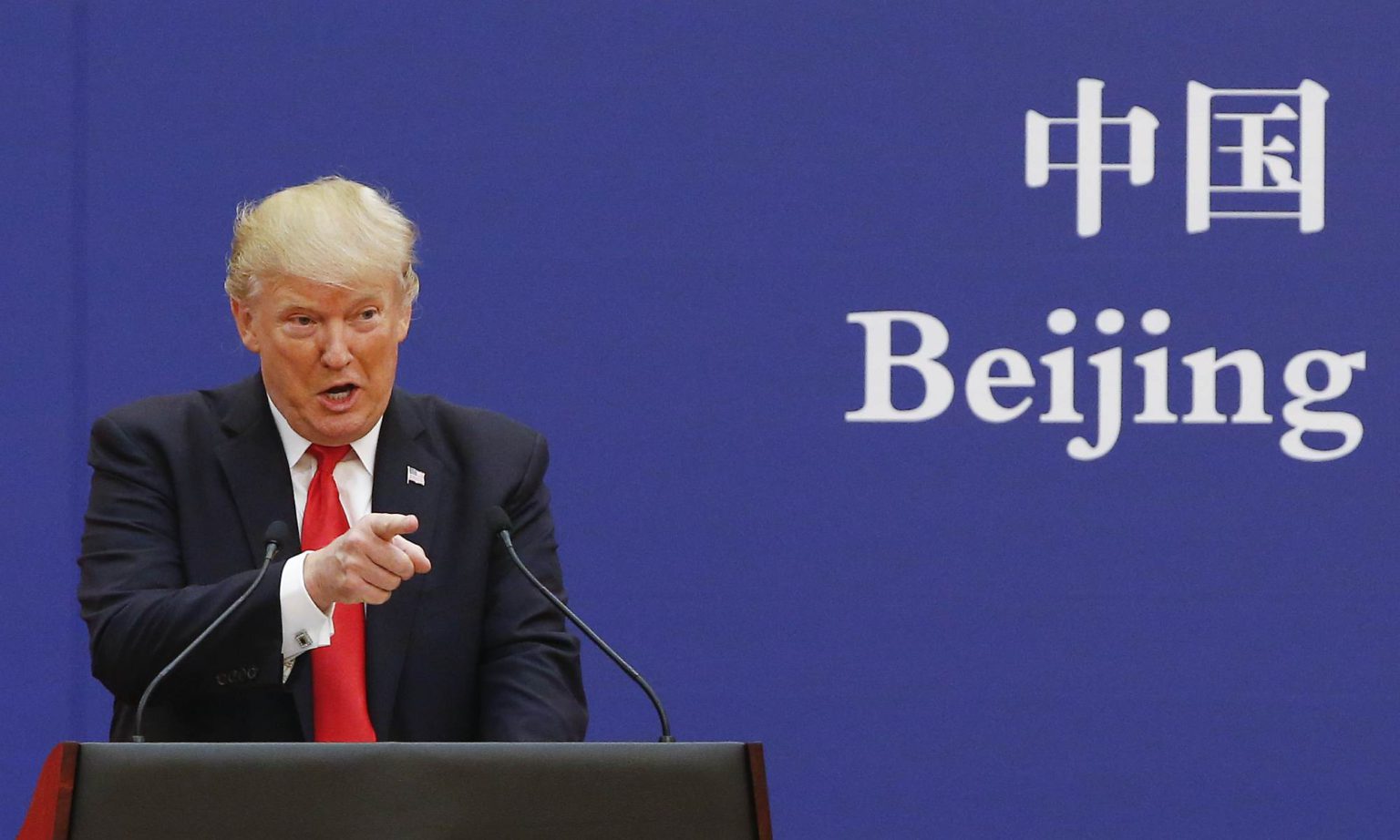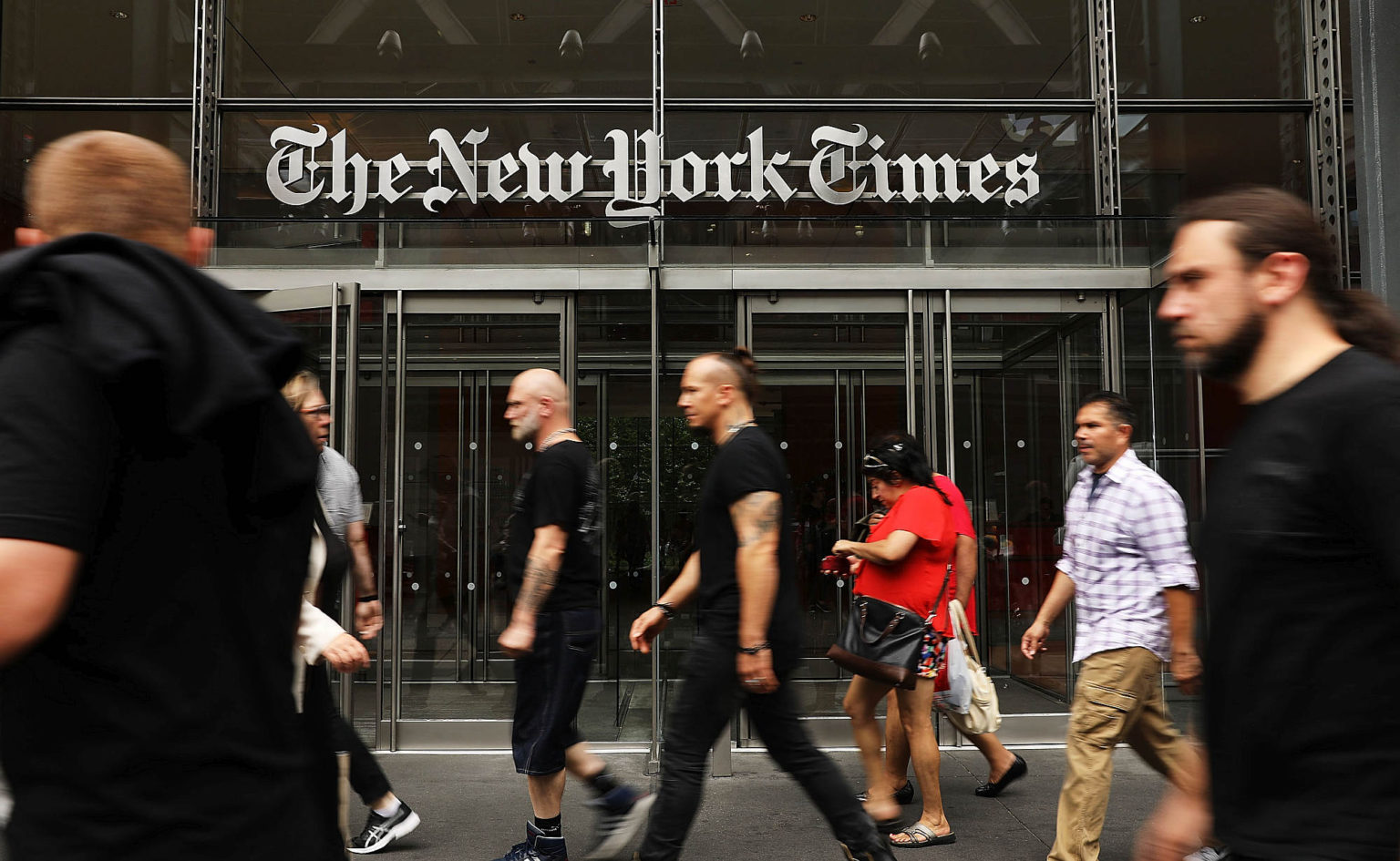
Long-read
Why Trump’s America will live on
The Biden-led political restoration is an elite project. It offers nothing to the working class.
Want to read spiked ad-free? Become a spiked supporter.
Like many, if not most Americans, I am somewhat relieved to see the petulant, nasty and sometimes clearly unhinged Donald Trump leave the White House. Yet for all his antics and vitriol, Trump has left a legacy that will be difficult to ignore and, given the dispensation of his opponents, could shape the future for the next decade.
Trump’s 2016 victory may be best considered a necessary colonic to a constipated political economy. He challenged in ways not seen for a generation the comfortable establishmentarian politics of both parties. Most critical of all, Trump, the scion of a property mogul, has re-established, along with his odd socialist doppelganger, Bernie Sanders, the relevance of class in American politics.
Trump may soon be out of power, but many of his views on international trade, media, economics and immigration will continue to influence politics for the next decade. We might see the end of President Trump, but the forces and attitudes he has unleashed likely will remain with us for decades to come.
Bye, bye kumbaya
Trump’s challenge to the establishmentarian worldview will resonate, even after the election. His willingness to stand up to China’s trade policies violated the interests of the corporate elite, tech, Hollywood and the mainstream media, all of whom almost without exception backed his opponent. Now Trump’s nationalist approach certainly will be toned down by the ‘liberal internationalists’ Biden is putting in place to run foreign affairs .
To be sure, China should welcome the ascension of Biden, if for no other reason than his commitment to the Paris accords which force costly changes on Western economies while giving the world’s biggest carbon emitter a free ride till 2030. Along with more ‘open trade’, Biden could prove an unwitting accomplice in China’s great ambition to replace the West, and notably America, as the heart of global civilisation.
Yet the era of global kumbaya, ended by Trump, is not likely to return. It has become painfully obvious that ‘free trade’, as carried out by our own companies, benefited the already affluent at the expense of most people. As the liberal New Statesman has put it succinctly, ‘the era of peak globalisation is over’. The pandemic has shattered the global village, weakening both economic and political ties between countries, including within the European Union. When Trump lambasts free trade and China, he may alienate much of the corporate elite, but his message appeals to people and communities that lost, according to one labour-backed group, 3.4million jobs between 1979 and 2017 to the Middle Kingdom.

To win politically, as former Democratic senator Evan Bayh suggests, may mean following Trump’s aggressively ‘America first’ line. If Biden hews to the establishment party line, he will face an emerging alliance between populists in both parties – Bernie Sanders and Joshua Hawley, for example. Some prominent Democrats like New York governor Andrew Cuomo joined Trump in denouncing our ruinous dependence on Chinese medical supplies and there’s growing bipartisan concern about dependence on Beijing for high-tech gear. Given the challenge posed by China, diplomats under Biden could seek not a restoration of the old globalism, but a de facto ‘united front’ with Europe, Australia, Canada, India, Japan and other east Asian countries against China.
The great transformation of the Democratic Party
The Democrats seem likely to give Republicans and Trump the opportunity to represent a large portion of the American middle and working classes. Today’s Democrats increasingly resemble a Stalinoid version old Republicans, who won with support from the upper class, notably on Wall Street and in Silicon Valley, as well as law and professional-service firms. This year Biden and his running mate, Kamala Harris, raised record sums from the corporate elite, notably the tech oligarchs and their Wall Street allies. Among financial firms, communications companies and lawyers, Biden outraised Trump by five to one or more. We will see this in play again in the upcoming cataclysmic battle to win the Georgia Senate seats, which started with a big Silicon Valley fundraiser for the Democratic candidates Jon Ossoff and Raphael Warnock.
The oligarchal cast of the putative ‘party of the people’ exposes it to populists left and right. Biden’s natural tendency may be, like Barack Obama, to wink and nod as Microsoft, Amazon, Apple, Facebook and Google acquire or crush competitors, continuing the erosion in anti-trust enforcement, occurring under both parties. But two thirds of the public want to break up the tech oligarchy that increasingly dominates the economy, the capital markets and information. The tech giants now account for nearly 40 per cent of the value of the Standard and Poor index, a level of concentration unprecedented in modern history.
For these oligopolies, the pandemic shift to online, covering everything from finance and retail to gaming, has provided an unprecedented boom. Tech is no longer the dynamic and entrepreneurial industry of legend. Rather, it has morphed into a system of conglomerate control more akin to the pre-war German cartels, Japanese keiretsu or Korean chaebol. As with trade, attempts to wink and nod at the oligarchs could stir a conflict with both big-city progressives, like Massachusetts senator Elizabeth Warren and some members of the House, along with several conservatives from the more rural interior.
The media’s big failure
In his usually intemperate manner, Trump accused the mainstream media of open bias and of being, in another unfortunate phrase, ‘enemies of the people’. Yet in the run-up to 2016, and beyond, there has been an odd symbiotic relationship between the two, with Trump, and hatred for him, fuelling media profits and providing massive amounts of free publicity.
In some ways the media have unwittingly undermined themselves as they worked overtime to eject Trump. Since the election, even respected papers like the New York Times (where I once had a monthly column) increasingly resembled a woke version of Pravda. Indeed, the elite media is increasingly engulfed by progressive ‘groupthink’ with ‘moral clarity’ as defined by the woke, replacing a commitment to free speech.
The shift from journalism to ‘resistance’ has helped bulk the audience for some parts of the media, but has also made them increasingly partisan. Ideological purity has come at the cost of public trust in most large media, with the biggest declines among Independents and Republicans; the New York Times, the avatar of woke journalism, is trusted by barely 30 per cent of Republicans compared to 50 per cent in 2016. Similarly, Gallup reports that since the pandemic, the news media has suffered the lowest ratings of any major institution, performing even worse than Congress or President Trump.

This serious erosion in public trust, according to a new Knight Foundation study, also applies to social media. Over 70 per cent of Americans, according to a recent Pew study, believe that social media censors political views, as has been demonstrated in the case of Reddit, Facebook and Google, and was clearly happening during the election coverage. This has led to something of a rush to less censorious sites like Gab and Parler. In California, the epicentre of Big Tech, people express more trust in the pot industry than the news business, according to a 2019 opinion survey.
Some, including some at the New York Times, want to ramp up further censorship, which, as left-wing gadfly Glenn Greenwald notes, would give establishment outlets an assured greater dominion over the internet. During the election, Twitter and Facebook already showed their intent when blocking off access to an incriminating New York Post story about Joe Biden’s son Hunter, and even muting the president and his administration for disseminating alleged inaccuracies and misinformation. They did this after years of pushing often equally absurd anti-Trump conspiracies. This brazen use of power, Greenwald suggests, crosses a ‘dangerous’ line, from eliminating extremists into censoring any discordant thoughts on critical public issues, from climate change to the pandemic.
The peasant rebellion is just starting
Trumpism’s appeal to working- and middle-class Americans was not hurt by the opposition of a media that largely disdains them. Indeed, as Democratic analyst Ruy Teixeira notes, the Democrats have largely abandoned the working and middle class. Trump won three-quarters of the white working-class vote, down only slightly from 2016. He did best with those who work with their hands, in factories, the logistics industry and energy, notes a recent study by CityLab.
Largely ignored by the press, these voters had compelling economic reasons to support Trump. In the first three years of the Trump administration – that is, before the pandemic – working-class Americans enjoyed the fastest income growth – better than that of the upper classes – for the first time in a generation. The pandemic-related lockdowns, strictest generally in blue states, have devastated workers in industries like hospitality and driven some eight million into poverty. Almost 40 per cent of those Americans making under $40,000 a year have lost their jobs, and they may be eager to get back to work. Yet still some Democratic advisers have urged Biden to consider imposing a strict national lockdown that would make that impossible.
Many people employed in basic industries like energy, agriculture and manufacturing – critical to electing Donald Trump – could see their jobs disappear. Restrictions and even a ban on fracking, likely to be embraced by many close to the Biden administration, could have catastrophic effects in places like Texas, North Dakota, Ohio, West Virginia and Pennsylvania. In Texas alone, by some estimates, one million jobs would be lost. Overall, according to a Chamber of Commerce report, a full ban on fracking would cost 14million jobs, far more than the eight million lost in the Great Recession.
The other big potential GOP constituency may be Main Street. Businesses there have been hit very hard by the pandemic, with an estimated 100,000 small firms going out of business. In contrast, the Democrats’ Wall Street and the oligarch backers have had a good pandemic. From March to June 2020, Amazon founder and Biden booster Jeff Bezos saw his wealth rise by an estimated $48 billion to an estimated $183 billion, making him easily the world’s richest man.
The racial component
The soon-to-be ex-president issued statements on such issues as immigration and developing (‘shithole’) countries that no American chief executive should ever utter. Yet despite his characteristic rudeness, this year more minorities shifted in his favour than expected. Trump gained one third of Muslim voters and boosted his share of Jewish voters by six per cent, particularly appealing to orthodox and older members of the Jewish community. The Asian community – the country’s fastest-growing minority – raised its support for Trump from 27 per cent in 2016 to 31 per cent this year.
Most importantly, Trump – an unpleasant, unprincipled man repeatedly labelled ‘racist’ in the mainstream media, a term also applied to any of his voters – won a significantly larger share of the Latino vote, particularly in Florida and Texas, and did better, albeit less impressively, among African Americans. Latino and Asian voters also helped shift several house seats to the GOP. Even the ultra-woke New York Times now admits, in looking at minorities, that it may have missed out on ‘class complexities and competing desires’.

The key here is that Latinos may be ‘people of colour’ but they are also people with jobs and families. They are heavily represented in blue-collar professions, notably personal services, construction, logistics and manufacturing. They generally have done better under President Trump than under previous administrations and have been most hurt by lockdowns, high energy prices and curbs on suburban housing. Today, barely 58 per cent of all working-class Americans are white; according to a 2016 Economic Policy Institute study, people of colour will constitute the majority of the working class by 2032.
The stark reality is that conventional blue politics, as we recently demonstrated in a new paper from the Urban Reform Institute, simply do not work for minorities, who generally do better in and are migrating to conservative-controlled states. Inner-city residents want good jobs and investment; relatively few want to ‘defund’ the police. Certainly, the ever more radical social views of the ‘woke’ left, which have been increasingly adopted by corporate America, also may not play well with many immigrants, who, according to one recent survey, are twice as conservative in their social views as the general public.
Battles to come
‘Happy the nation whose people have not forgotten how to rebel’, wrote the British historian RH Tawney. And unless something is done to address growing inequality and lack of upward mobility, this rebellious streak will return from the populists both left and right. As of now, the restored establishment lacks a viable vision to improve the lives of most Americans, particularly given their embrace of green ideology which makes broad-based economic growth all but impossible.
In their current guise, Democrats today can only offer redistribution of wealth, which itself can come in two forms, each with inherent problems. A traditional socialist approach would hardly be in the interest of the Democratic funders or the non-profit establishment, given it would involve siphoning off the wealth of people like Jeff Bezos, who expended much of his media power, through the Washington Post, opposing Bernie Sanders’ presidential bid. Yet the progressive left continues to push this agenda, notably in big urban centres, a continuing challenge to more oligarch-friendly liberals.
The other alternative would be to turn the middle and working class into future serfs – that is, people increasingly dependent on what Marx called ‘the proletarian alms bag’ (1). This ‘oligarchal socialism’ – backed by many tech oligarchs – would transfer funds, likely from the remaining middle class, to fund a ‘guaranteed annual income’ to keep hoi polloi in subsidised apartments, spending their time in low-wage gig jobs, while they play video games, smoke pot, drink and water their houseplants. It is an approach that allows the oligarchs to continue accumulating the wealth and power they see as their due, while keeping the peasants separate from their pitchforks.
These unattractive alternatives could provide enormous opportunities for Republicans, or more traditional Democrats, if they could overcome the opposition of ‘market fundamentalists’. On the right, as the American Prospect has demonstrated, many conservative think-tanks are financed by Google and other oligopolists. The future could belong not to Trump but to more coherent Republicans like Oren Cass and his American Compass group, who reject ‘let the market rip’ fundamentalism and openly favour working-class interests in terms of healthcare, education, housing, anti-trust policy and energy.
Americans do not want to be either Marxist or oligarchic wards. They generally desire to become more self-sufficient and successful. The attempt to implement a pilot guaranteed-incomes programme in Stockton, California, a hardscrabble Valley town of 300,000, was recently rescinded by a primarily minority electorate, who replaced a progressive Democratic with a black Republican preacher. Like most Americans, most minorities and working-class people still believe in the ‘dream’ even if they believe that it is more difficult to achieve.
Until that quintessentially American spark is squelched entirely, the disruptive process brought on by Trump will not go away, but simply evolve and even expand. The question will be whether a more sober, less nativist, and focused populism will emerge from the wreckage or be replaced by something more troubling.
Joel Kotkin is the Presidential Fellow in Urban Futures at Chapman University and executive director of the Urban Reform Institute. His new book, The Coming of Neo-Feudalism, is now out from Encounter. You can follow him on Twitter @joelkotkin
All photos: Getty Images.
(1) ‘The Manifesto of the Communist Party’, by Karl Marx and Friedrich Engels, in The Essential Left, New York, 1961, pp36–37

Spare a fiver, support spiked
Become a £5 per month donor today!
Celebrate 25 years of spiked!
A media ecosystem dominated by a handful of billionaire owners, bad actors spreading disinformation online and the rich and powerful trying to stop us publishing stories. But we have you on our side. help to fund our journalism and those who choose All-access digital enjoy exclusive extras:
- Unlimited articles in our app and ad-free reading on all devices
- Exclusive newsletter and far fewer asks for support
- Full access to the Guardian Feast app
If you can, please support us on a monthly basis and make a big impact in support of open, independent journalism. Thank you.







Comments
Want to join the conversation?
Only spiked supporters and patrons, who donate regularly to us, can comment on our articles.